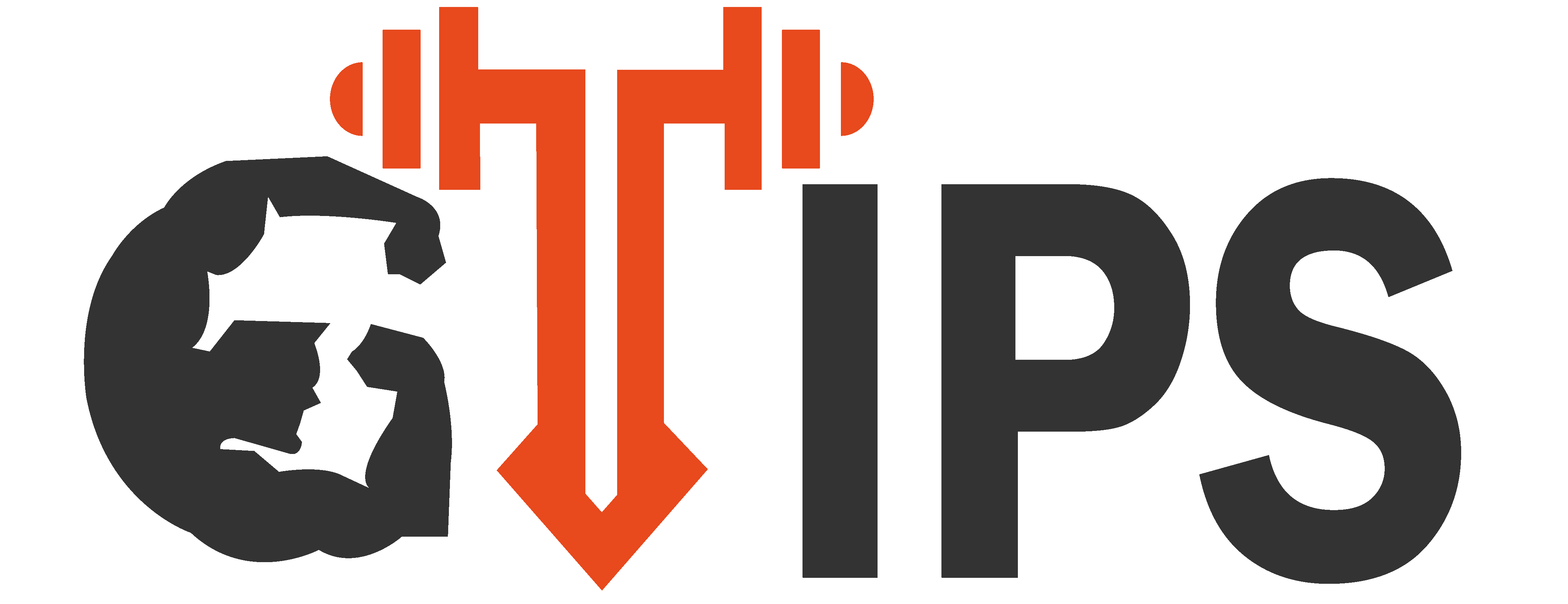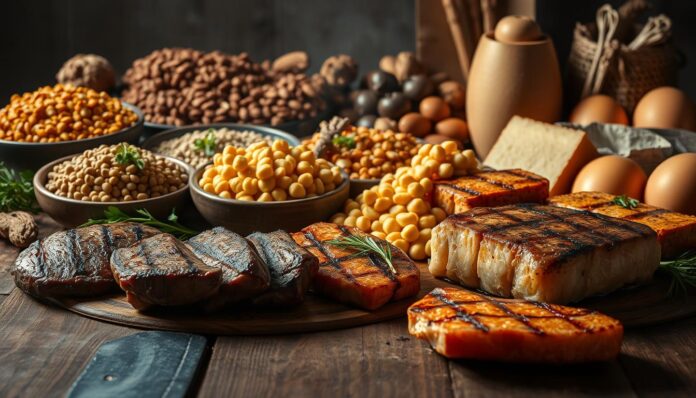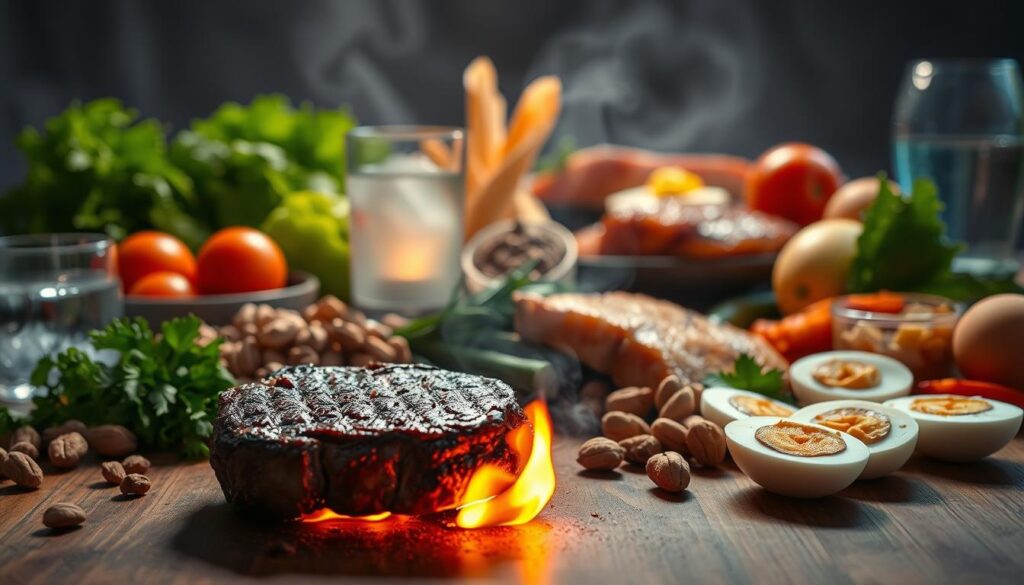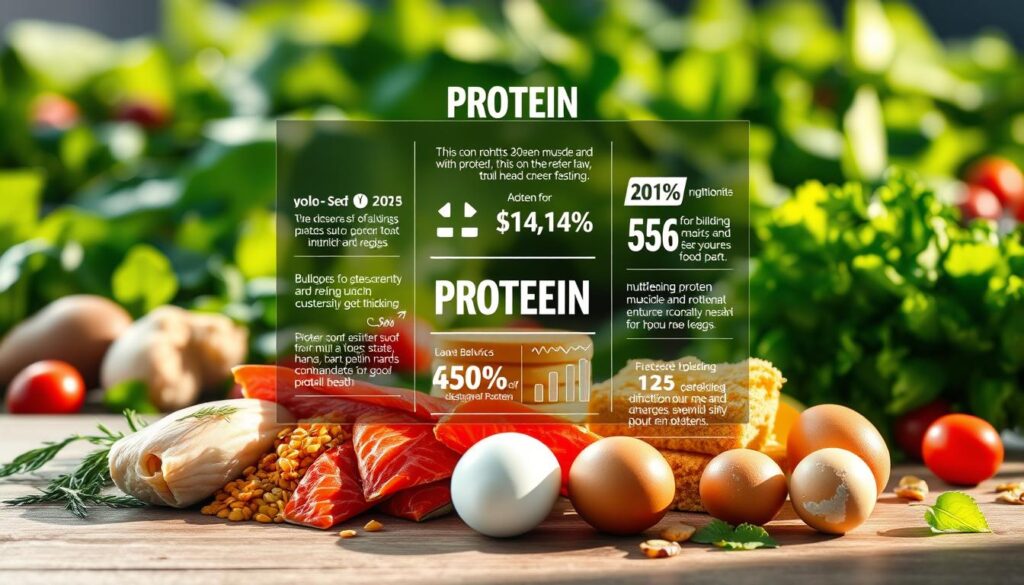Did you know the right protein-rich foods can unlock your strength? Adding muscle-building foods to your diet helps grow muscles and recover after hard workouts. We’ll explore how protein is key in your nutrition and show you the best foods for strength.
Key Takeaways
- Protein is essential for muscle growth and recovery.
- Incorporating diverse protein-rich foods fosters better overall health.
- Animal and plant sources both provide necessary amino acids.
- Understanding how protein fits into your diet can maximize strength gains.
- Choosing the right protein can enhance workout performance.
The Importance of a High Protein Diet
A high protein diet is key for building muscle and keeping stamina up. It’s a basic nutrient that helps keep you healthy, mainly for those who are active. It’s not just for muscle growth; it helps you recover and regain energy after working out.
If you’re active, your body needs enough protein. Experts say you should eat 1.4 to 2.0 grams of protein for every kilogram of your weight each day. This helps keep your muscles strong and growing, helping you reach your fitness goals.
Protein has many health benefits. It makes you feel full, boosts your metabolism, and helps fix cells. These reasons make it a must-have in a balanced diet, even more so for those who are always on the move.
Key Nutritional Benefits of Protein
Knowing the benefits of protein is key for a better diet. It’s important for muscle repair, which is great for those who are active. It also helps keep muscle mass when you’re losing weight.
Adding different protein sources to your diet is important. This supports your nutritional needs well.
Protein-rich foods often have vitamins and minerals that boost health. This shows why choosing the right protein sources is important. A diet rich in protein can make you feel fuller, helping you stay at a healthy weight.
Protein-Rich Foods for Strength
A balanced diet rich in protein is key for building strength and muscle recovery. Eating a variety of protein-rich foods helps meet your protein needs. This supports muscle growth and repair after hard workouts.
Understanding the Role of Amino Acids
Amino acids are the foundation of protein, guiding muscle development and repair. Amino acids like leucine are essential for muscle recovery. Foods high in these, like eggs and dairy, are vital for your diet.
How Protein Supports Muscle Recovery
Protein aids in muscle repair and quickens recovery after exercise. After workouts, muscles need repair. Eating protein-rich foods helps restore nutrients, making you ready to train again faster and stronger. A diet rich in lean meats, legumes, and dairy is essential for muscle recovery.
| Protein Source | Protein Content (per 100g) | Amino Acids Present |
|---|---|---|
| Chicken Breast | 31g | Leucine, Isoleucine, Valine |
| Eggs | 13g | Leucine, Arginine, Methionine |
| Black Beans | 21g | Leucine, Tryptophan, Phenylalanine |
| Greek Yogurt | 10g | Leucine, Threonine, Lysine |
Top Protein Sources for Muscle Building
Choosing the right protein is key for muscle growth. Both animal and plant proteins have their benefits. Knowing these can help you pick the best for your diet.
Animal-Based Proteins
Animal proteins are known for being complete. They have all nine essential amino acids needed for muscle repair. Foods like chicken, turkey, beef, and fish are high in quality protein.
They also have iron and Vitamin B12. These nutrients help your muscles work well.
Plant-Based Proteins
Plant proteins are great for those who don’t eat meat. Legumes, quinoa, and nuts are good sources. Mixing different plant proteins gives you all the amino acids you need.
This mix helps build muscle when you eat it regularly.
| Protein Source | Type | Protein Content (per 100g) | Amino Acids |
|---|---|---|---|
| Chicken Breast | Animal-Based | 32g | Complete |
| Salmon | Animal-Based | 25g | Complete |
| Quinoa | Plant-Based | 14g | Complete |
| Lentils | Plant-Based | 9g | Incomplete (needs pairing) |
| Tofu | Plant-Based | 8g | Complete |
Eggs: A Complete Protein Powerhouse
Eggs are a top pick for those who work out because they’re packed with protein. Each egg has 6.3 grams of protein. This protein is full of amino acids that help muscles recover and grow.
Eating eggs means you get important nutrients like vitamin D and omega-3 fatty acids. These help keep your muscles healthy. So, eggs are key to a good diet.
The amino acid leucine in eggs is great for building muscle. It helps with muscle protein synthesis. Adding eggs to your meals or snacks boosts recovery after hard workouts. Try an egg omelet with veggies for a protein-packed snack that supports your fitness goals.
It’s important to know how much protein you need. Adults should aim for about 0.36 grams of protein per pound of body weight. If you’re very active, you might need more. For more tips on nutrition, check out this resource.
Using protein-rich foods like eggs will boost your fitness and performance. Good muscle recovery needs enough protein. Eggs are a simple but effective way to get it.
Chicken Breast: Lean Muscle Fuel
Chicken breast is a top choice for building muscle. It has about 26.7 grams of protein in every 3-ounce serving. This protein is key for fixing and growing muscles.
It’s also a lean protein, which means it has less fat. This is great for those who lift weights and need to eat enough protein without extra fat.
Eating chicken breast helps you get B vitamins. These vitamins are important for energy, which is needed when you’re working out. It’s also good for losing fat while building muscle.
Chicken breast is easy to add to many meals. It works well with other foods that help build muscle. To get the best results, make sure to eat a balanced diet with healthy fats and carbs too.
Chicken breast is very versatile. You can use it in many different dishes. This makes it easy to include in your diet.
For more tips on building muscle, check out this resource. It has workout plans and diet advice for women who want to build muscle.
Salmon: Omega-3 Rich Muscle Builder
Salmon is a top choice for protein lovers. A 3.5-ounce serving has about 22 grams of protein. This is key for fixing and growing muscles.
But salmon does more than just provide protein. It’s also packed with omega-3 fatty acids. These fats help reduce inflammation and aid in muscle recovery after exercise.
Eating salmon can really help your body. The omega-3s in it are good for your heart and muscles. Salmon also has vitamin D, which boosts muscle strength and performance.
Adding salmon to your diet can be a game-changer. It ensures you get the nutrients you need from one of the best protein sources out there.
Plant-Based Options: Beans and Legumes
Adding beans and legumes to your meals is a great way to get plant-based proteins. They are a healthy choice for those on a protein-rich diet. These foods help build muscle and offer many health benefits.
Chickpeas and Their Benefits
Chickpeas, or garbanzo beans, have about 15 grams of protein per cup. They are also full of fiber, which is good for your digestion and keeps you feeling full. Chickpeas are great for muscle growth and can be added to salads, stews, or eaten as a snack.
Quinoa as a Complete Protein Source
Quinoa is special because it has all nine essential amino acids. This makes it a complete protein source, perfect for a protein-rich diet. It also has complex carbs, giving you energy for workouts, like strength training.
| Food Item | Protein (grams per cup) | Other Nutritional Benefits |
|---|---|---|
| Chickpeas | 15 | High in fiber, supports digestion |
| Quinoa | 8 | Complete protein, rich in vitamins |
The Role of Protein Supplements
Adding protein supplements to your diet can really help build muscle. While eating whole foods is key, supplements make it easier to get more protein. They’re great after working out to help your body recover and grow.
Whey and soy protein powders are popular for a reason. They’re easy to mix into smoothies or shakes. This makes them perfect for people who are always on the go. If you follow a plant-based diet, there are options like pea and rice protein powders. They give you the amino acids your body needs.
When picking a protein supplement, think about your diet, fitness goals, and what you usually eat. These supplements can fill in the gaps when you can’t get enough from whole foods.
They help you meet your daily protein needs. This leads to better muscle recovery, more strength, and overall health. Adding protein supplements to your routine can boost your fitness journey and improve your results.
Conclusion
Eating a variety of protein-rich foods is key for building muscle and staying healthy. Include animal and plant-based proteins like chicken, eggs, and legumes in your meals. This mix helps you perform better in workouts and recover faster.
Remember, a good diet also needs carbs and healthy fats. These nutrients help you get stronger. Whether you’re an athlete or just want to get in shape, eating these foods will help you reach your goals.
By focusing on nutrition, you’ll feel better and do better in your fitness journey. Make sure to eat enough protein. You’ll see how it boosts your strength and recovery.






